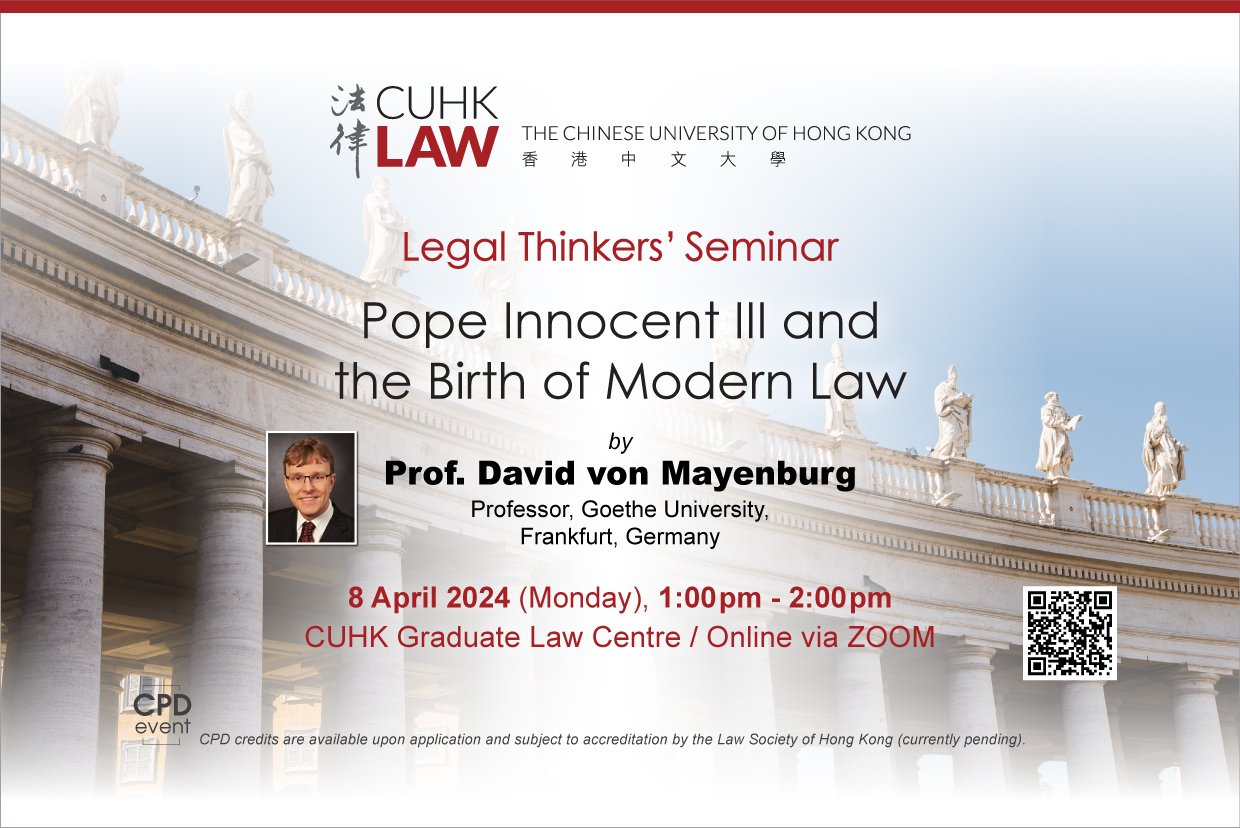活动
CUHK LAW Legal Thinkers’ Seminar – ‘Pope Innocent III and the Birth of Modern Law’ by Prof. David von Mayenburg
2024年4月8日
1:00 pm – 2:00 pm
Mixed Mode: Graduate Law Centre 2/F, Bank of America Tower, 12 Harcourt Road Central, Hong Kong & Online (Zoom)
Prof. David von Mayenburg
David von Mayenburg was born in Munich in 1968. He initially studied history in Munich and Oxford, and, after obtaining his master’s degree in 1995, studied law in Bonn. After completing his Second State Exam in 2004, he was awarded his doctorate in law in Bonn in 2005 with a thesis on the history of criminal law. He received the “Prize of the Italian President” for his doctoral thesis in 2006. His habilitation at the University of Bonn, completed in 2012, focussed on the legal context of peasant revolts in the 16th century. The University of Bonn awarded him a teaching licence for the subjects “Civil Law”, “German Legal History” and “History of Canon Law”. After substitute professorships in Düsseldorf, Mannheim, Bayreuth and Frankfurt, David von Mayenburg was appointed Professor of Legal History and Contemporary Legal History at the University of Lucerne (Switzerland) in 2013, before becoming Professor of Modern Legal History, History of Canon Law and Civil Law at Goethe University Frankfurt a.M. in February 2014.
He is the general editor of the four-volume handbook on the history of conflict resolution in Europe since antiquity and, within this work, of the volume on conflict resolution in the Middle Ages. In addition to books and articles on the history of the German Peasants’ War of 1525, he has published a book on the assessment of compensation for immaterial damages in the field of civil law.
You probably don’t think of a medieval pope when you ask for the list of Europe’s most famous legal thinkers. Nevertheless, Pope Innocent III (born around 1161, pope 1198-1216) is a worthy entry in this list. Although he probably never studied law himself, his influence on the law of the Church, but also on secular law, was immense. On the one hand, this had to do with his political instinct and his sense of power, which moved him to intervene in the secular sphere with his papal letters (so-called decretals). On the other hand, his legal ingenuity helped him to set standards not only with the administrative reform of ecclesiastical institutions, which served as a model for the secular administrations of the early modern period. In addition, many of his decisions also had an impact on civil and criminal law far beyond his time – both in civil law and in canon law.
The lecture first presents the life of this important pope and then analyses his significance for modern law using selected examples.
Language: English


